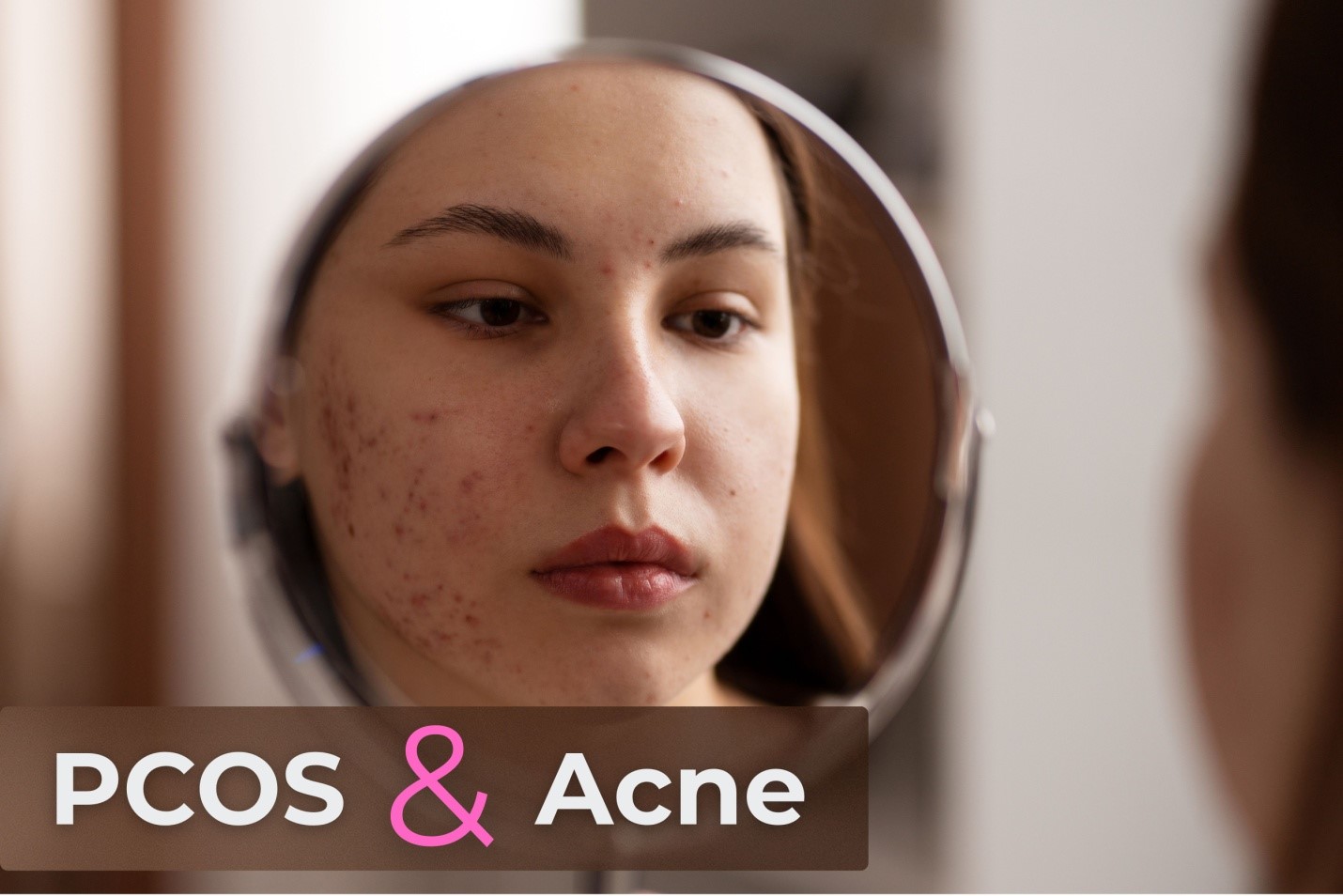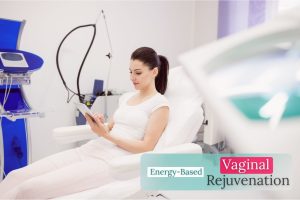More than just a teenage issue, acne may be a chronic and upsetting problem, particularly for those who have PCOS (polycystic ovary syndrome). According to cosmetic gynecologist and PCOS specialist Dr. Shraddha Goel, hormonal imbalances in PCOS frequently result in skin issues like greasy skin, acne, and breakouts that are more difficult to treat than regular acne. This blog discusses PCOS acne, its causes, and the best management and treatment strategies.
Understanding PCOS and Hormonal Acne
What Causes Acne in PCOS?
Ovarian cysts, irregular periods, and high levels of androgen (male hormone) are the hallmarks of PCOS, a hormonal condition. Excess androgens cause the skin to produce more oil, or sebum, which clogs pores and makes the ideal conditions for breakouts. Acne of this kind is frequently:
- Deep and cystic
- It hurts to touch
- Focused on the lower face, jawline, and chin.
Cystic acne in PCOS necessitates a more focused approach and is not always responsive to over-the-counter therapies, unlike teenage acne.
Emotional Impact of PCOS Acne
PCOS acne is more than simply a cosmetic problem; it frequently lowers self-esteem. A lot of women experience anxiety, steer clear of social situations, or spend hours trying to cover up breakouts with cosmetics. Treating acne’s psychological aspects is equally as crucial as its physical manifestations.
How to Treat Acne with PCOS: Effective Options
A combination of skincare products, medication, and lifestyle modifications are needed to treat acne caused by PCOS. There should always be a customized approach to treatment because each woman has different symptoms.
1. Hormonal Treatments
Birth Control for Acne
One of the most popular treatments for PCOS acne is oral contraceptives. They balance the menstrual cycle, lower androgen levels, and control hormones. Over time, they help skin clear up by reducing oil production by lowering testosterone.
Spironolactone for Acne
Women with PCOS are frequently prescribed the anti-androgen drug spirolactone. It prevents breakouts and lowers oil production by blocking the impact of androgens on the skin. After using it for a few months, many women report a noticeable improvement in their acne.
Note: Due to the possibility of side effects and the need for monitoring, these treatments should only be administered under a doctor’s supervision.
2. Topical Treatments
Topical Retinoids
Retinoids are derivatives of vitamin A that decrease inflammation, clear pores, and accelerate the turnover of skin cells. When used in conjunction with other treatments, they are particularly successful in hormonal acne treatment. Retinoids come in over-the-counter (like adapalene) and prescription (like tretinoin) forms.
Other Topical Options
- Benzoyl Peroxide: Decreases bacteria that causes acne.
- Salicylic Acid: Helps in skin exfoliation and pore clearing.
- Azelaic Acid: Combats pigmentation and acne, which are frequently present in people with PCOS.
- The best results from topicals are obtained after 8–12 weeks of consistent use.
3. Best Skincare for Hormonal Acne
Skincare is essential for controlling outbreaks caused by PCOS. The ideal regimen is straightforward and reliable:
- Gentle Cleanser: Steer clear of strong scrubs that cause skin irritation.
- Oil-Free Moisturizer: Even for skin that is oily or prone to acne, hydration is crucial.
- Non-Comedogenic Sunscreen: keeps pores unclogged while protecting skin.
- Spot Treatments: For aggressive pimples, apply benzoyl peroxide or salicylic acid.
Don’t swap items too often. The best outcomes are frequently achieved via patience and stability.
4. Lifestyle & Diet for PCOS Acne
The severity of acne can be influenced by diet, particularly in PCOS patients. In addition to medical treatment, Dr. Shraddha Goel frequently suggests dietary changes.
Foods to Avoid
- High-sugar foods (cakes, sodas, sweets)
- Junk food that has been processed
- Too much dairy and processed carbohydrates
Foods to Include
- Leafy greens, vegetables, and sprouts
- Whole grains and lean proteins
- Nuts, fatty salmon, and turmeric are examples of foods that reduce inflammation
Lifestyle Habits That Help
- Exercise regularly: Increases hormone balance and insulin sensitivity.
- Sleep well: Hormonal control is disrupted by inadequate sleep.
- Manage stress: Stress raises cortisol levels, which exacerbate acne. Techniques like conscious breathing, yoga, and meditation can be beneficial.
Natural and Supportive Remedies
Some natural therapies may help promote skin health in addition to medical care:
- Green Tea: Lowers the production of sebum and irritation.
- Spearmint Tea: According to some research, it reduces androgen levels.
- Aloe Vera Gel: Reduces skin irritation and inflammation.
- Zinc Supplements: May enhance acne healing and lessen irritation.
These can support continuing medical care but are not a substitute for it.
Myths About PCOS and Acne
- Myth: Acne can be resolved by washing your face more frequently.
Fact: Excessive cleaning removes natural oils and exacerbates acne.
- Myth: Acne only affects teenagers.
Fact: Hormonal acne in PCOS often continues well into adulthood.
- Myth: Acne is always caused by makeup.
Fact: When properly removed, non-comedogenic, oil-free makeup is usually safe.
Combining Treatments for Best Results
Combining therapy is the most efficient strategy to manage cystic acne PCOS.
For example:
Birth control + topical retinoids
Spironolactone + consistent skincare routine
Medical treatment + healthy diet & lifestyle changes
Better long-term outcomes are achieved with this combined strategy, which targets acne from the inside out.
When to See a Doctor
If your acne is:
- Painful and cystic
- Leaving scars or dark spots
- Not improving with over-the-counter products
…It’s time to consult an expert. Treatments can be customized by a doctor like Dr. Shraddha Goel according to lifestyle factors, skin type, and hormone levels.
Final Thoughts
Although PCOS acne can be emotionally upsetting and difficult to cure, it is manageable with the correct approach. A supportive diet for PCOS acne, topical retinoids, and hormonal acne treatment (birth control and spironolactone) can all greatly improve skin. Long-term skin health is ensured by developing the best skincare routine for hormonal acne in addition to these.
There is no one treatment that works for everyone. Acne can be efficiently managed, skin health may be restored, and confidence can be restored with the help of professionals like Dr. Shraddha Goel.




